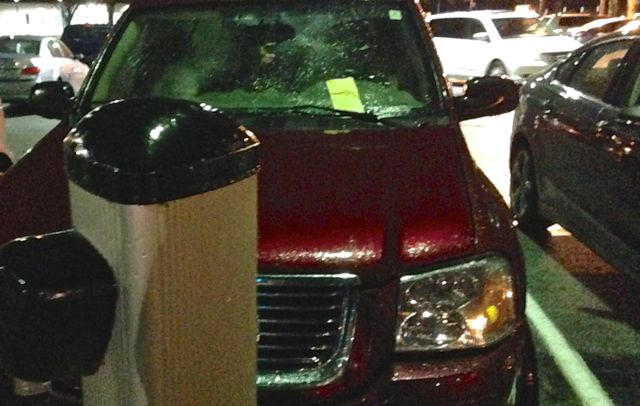
Starting January 1, 2016 people who park non-electric vehicles in spots reserved for an electric vehicle charging station in Illinois will be subject to a minimum $75 fine and get their car towed.
Illinois Governor Bruce Rauner signed the “Anti-ICEing” legislation (HB0198) on July 29, 2015. The bill, sponsored by Rep. Robyn Gabel after her office received a complaint from an EV driver, passed both houses of the Illinois legislature on May 26, 2015.
The new law will allow local municipalities to impose an even greater fine of up to $100 and stipulates that the legality of the signage is not a defense if a reasonable person would be made aware by the sign or notice that the space is for electric vehicles only.
Here is the text of the new Illinois law.
Sec. 11-1308. Unauthorized use of parking places reserved for electric vehicles.
(a) For the purposes of this Section: “Electric vehicle” means a battery-powered electric vehicle operated solely by electricity or a plug-in hybrid electric vehicle that operates on electricity and gasoline and has a battery that can be recharged from an external source. “Electric vehicle charging station” means any facility or equipment that is used to charge a battery or other energy storage device of an electric vehicle.
(b) It shall be prohibited to park a non-electric vehicle in an electric vehicle charging station designated for use by electric vehicles, including an electric vehicle charging station on any private or public offstreet parking facility. A person may park only an electric vehicle in an electric vehicle charging station space designated for use by electric vehicles.
(c) Any person or local authority owning or operating any public or private offstreet parking facility may, after notifying the police or sheriff’s department, remove or cause to be removed to the nearest garage or other place of safety any non-electric vehicle parked within an electric vehicle charging station space designated for use by electric vehicles.
(d) It shall not be a defense to a charge under this Section that the sign or notice posted at the electric vehicle charging station or the designated parking space does not comply with applicable rules, regulations, or local ordinances, if a reasonable person would be made aware by the sign or notice on or near the parking space that the space is reserved for electric vehicles.
(e) Any person found guilty of violating the provisions of subsection (b) shall be fined $75 in addition to any costs or charges connected with the removal or storage of the non-electric vehicle; but municipalities by ordinance may impose a fine up to $100.
Effective Date: 1/1/2016


 If the governor signs the bill, it means that after January 1, 2016, any non-electric vehicle that is blocking a designated charging station can be towed and the owner fined $75 to $100. The penalty will apply on private parking areas open to the public and the charging spot need only be designated so that, “…a reasonable person would be made aware by the sign or notice on or near the parking space that the space is reserved for electric vehicles.”
If the governor signs the bill, it means that after January 1, 2016, any non-electric vehicle that is blocking a designated charging station can be towed and the owner fined $75 to $100. The penalty will apply on private parking areas open to the public and the charging spot need only be designated so that, “…a reasonable person would be made aware by the sign or notice on or near the parking space that the space is reserved for electric vehicles.” 










 (Published March 31, 2015) About a year ago, I contacted my representative on the Howard County Council, Jen Terrasa, and asked her to introduce legislation to prohibit non-plug-in vehicles from parking at electric vehicle charging stations like
(Published March 31, 2015) About a year ago, I contacted my representative on the Howard County Council, Jen Terrasa, and asked her to introduce legislation to prohibit non-plug-in vehicles from parking at electric vehicle charging stations like 

